Meet The ‘Eco Village Lady’ of India Who Uses Solar Energy to Power Villages in Ladakh
Neha Upadhyay empowers farmers, especially women, by introducing solar drying and eco-friendly practices in Ladakh through her initiative, Guna Organics. Here's how it works.
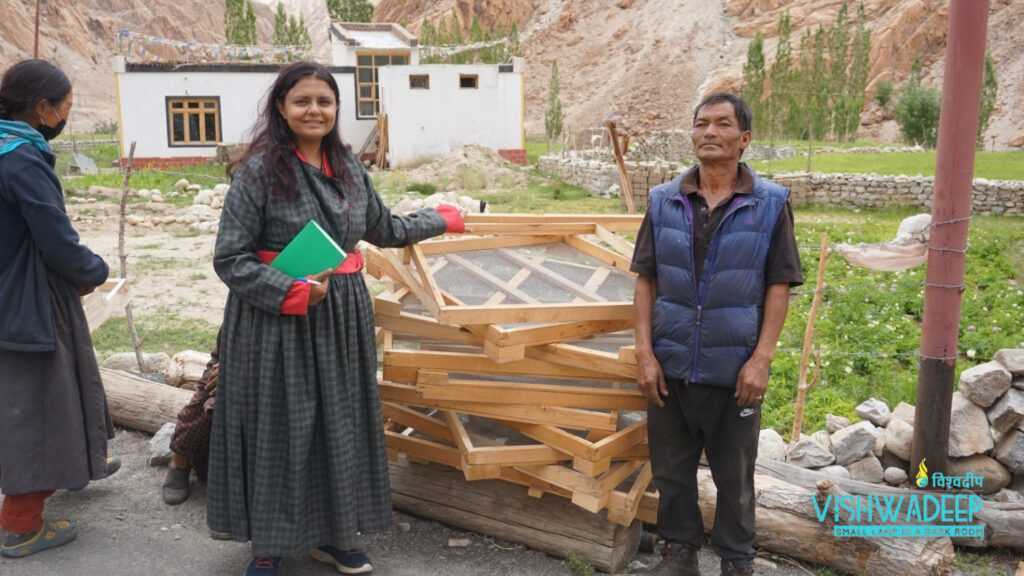
To create a revolution, one has to step outside one’s comfort zone. This became clear to Delhi’s Neha Upadhyaya right at the outset of her quest to transform the rural hinterland of India, with a special focus on Ladakhi villages.
It is now a decade since that bold decision, and Upadhyaya couldn’t be prouder of the ripple effect her efforts created — impacting more than 3,000 women through her platform Guna Organics and also playing a role in eight rural nooks being branded as ecovillages. Her venture Guna Organics under Vishwadeep Trust integrates organic practices and solar technology in farming.
Upadhyaya’s journey has been fraught with obstacles and wins, the former often being precursors to the latter, she points out. Take for instance the time she was forced to relieve herself near an animal shed in Tukla village.
Women’s sanitation woes became evident to her and she began advocating for public toilets. Today, the set of public toilets for women that stand in the Tukla and Urbis villages is the result of months of effort.
While the villagers of Ladakh know her as the woman who has fought the authorities on their behalf, Upadhyaya says she is simply a changemaker. She calls herself a social entrepreneur who set out to reduce the chasm between Indian metropolitans and their rural counterparts — a feat that seemed impossible in 2014 when she started.
She recalls another incident where she came face to face with the difficulties the locals of Ladakh faced.
“I was shocked to learn that the villagers walked 35 km for a litre of oil. Imagine walking for five hours for a single litre!” Appalled, she began approaching the authorities for an oil extraction machine, and within months the villagers’ woes were eased.
When the ask was delivered, their smiles were all the validation she looked for.
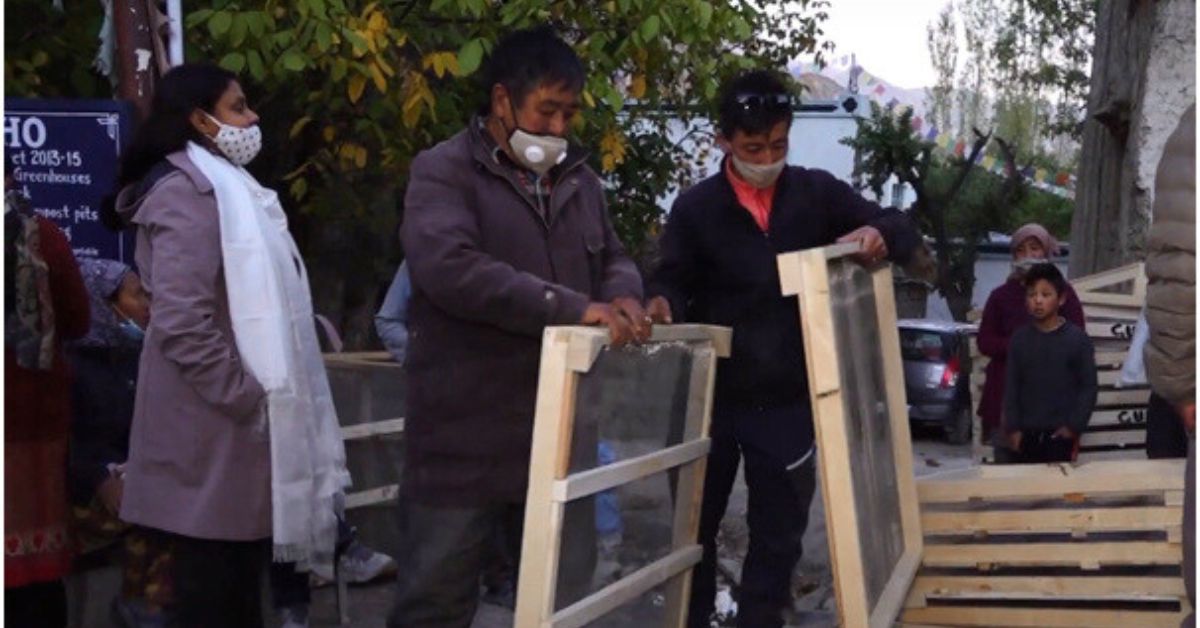
Devastation — a motivator
Upadhyaya recalls the 2010 floods in Ladakh as the experience that compelled her to return to India from the UK where she was working. On 6 August 2010, what seemed to be a case of bad weather, raised alarms when the water level crossed 14 inches in two hours in Ladakh leading to panic and destruction.
Termed ‘an extreme geological event’, several farms, fields, animals and homes were washed away, leaving behind an impoverished region.
In the days that followed, Upadhyaya and her sister Shree Upadhyaya were flooded with requests for money, food, medicines and aid. And they were more than happy to help. Their charitable act extended well beyond their stay in the region.
But while it was good work, she wondered if it was sustainable. “I didn’t want to leave the people of Ladakh at the mercy of the government,” she says, adding that she couldn’t keep doling out money either.
To this end, in 2014, Guna Organics became her way of formalising the support she wanted to extend to the people of Ladakh.
A space where green initiatives sprout
While the floods of Ladakh had fuelled Upadhyaya’s decision to help the rural folk, it was a statistic that helped her fine-tune the diaspora she wanted to focus on.
“A woman farmer spends 3,485 hours in a year on one hectare of farmland. A male farmer works for 1,212 hours on land the same size and a pair of farm animals clock in 864 hours.”
The drudgery of women farmers is evident. “In addition to this, they have to attend to their families, cook, and please their in-laws. The list is endless,” Upadhyaya argues.
She then goes on to draw parallels between the plight of these female farmers and women entrepreneurs in India, where she says “only 3 percent out of 14 percent women entrepreneurs are funded out of which 1 percent sustain.”
The system’s fragility became apparent to Upadhyaya.
One small step in the right direction is all that is needed for change to follow. A firm believer in this, she decided to get the women farmers of Ladakh to transition to organic farming practices, explaining the perils of chemicals to them.
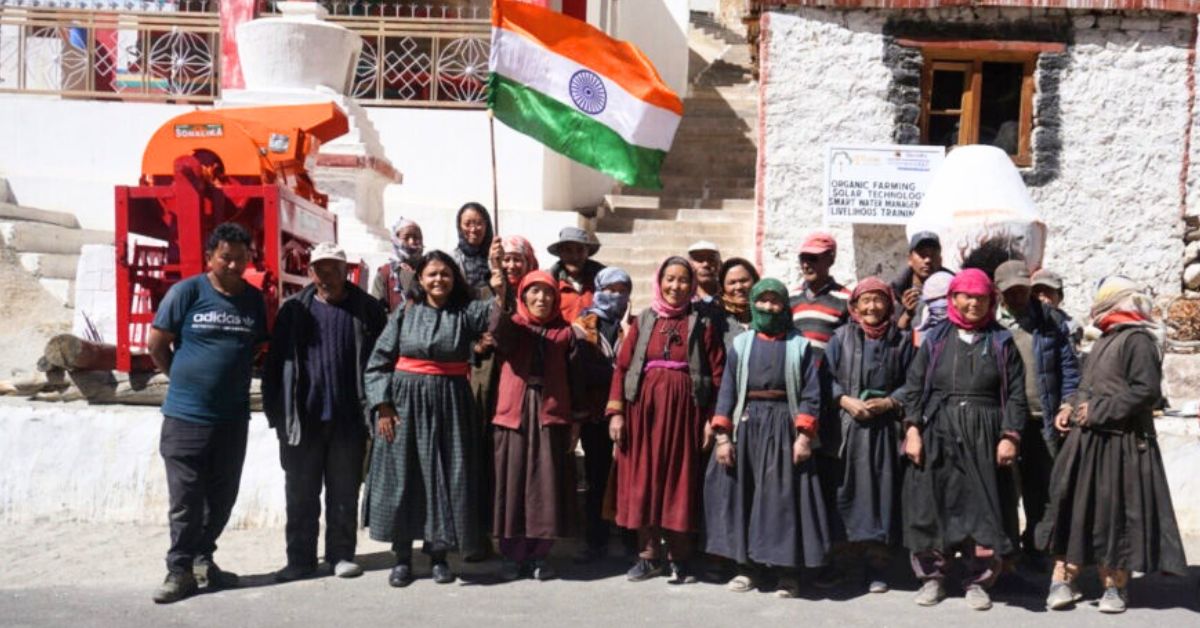
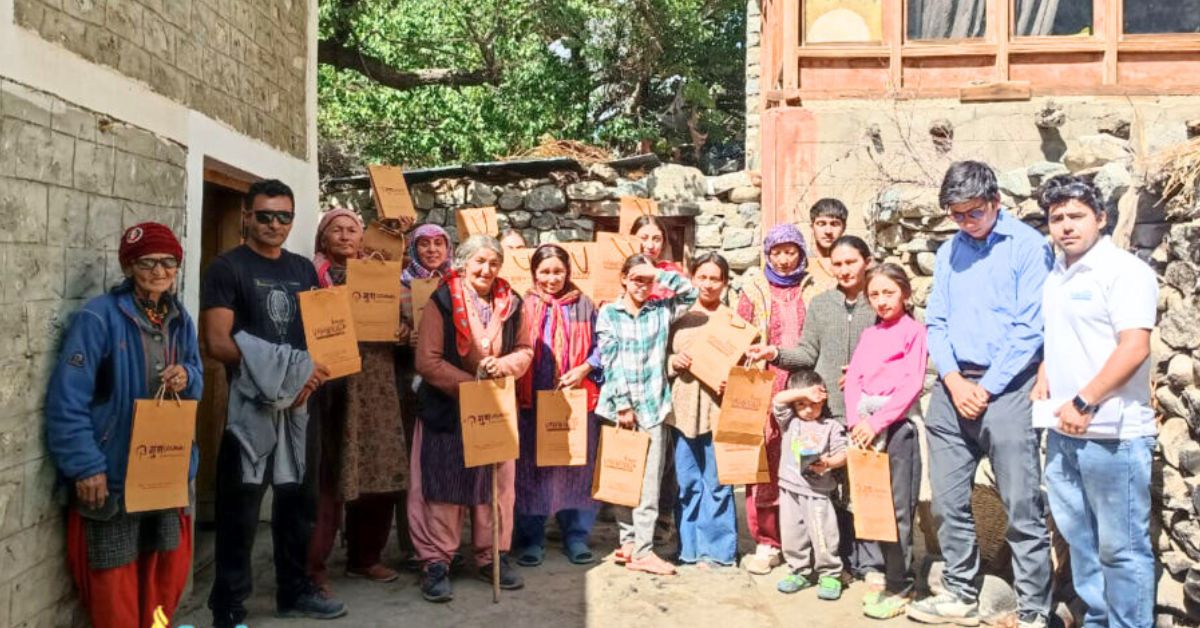
Naturally, this was met with scepticism. “The farmers were scared. They felt there was a negative attitude towards organic farming, and that the pesticide lobby was very strong.”
The same reluctance cropped up when Upadhyaya wanted to introduce a solar dryer in the villages through her initiative. But she was met with queries like would it work, how would the fruits look and taste after they were sundried? Would there be customers for these dried fruits?
The questions were many. In time, the farmers finally saw an opportunity in the solar dried fruits and Upadhyaya was relieved.
The slew of awards — the Social Impact India Award (2017) by the British Council and Entrepreneur Excellence Award by I.I.T. Delhi (2017), Earthday Network Star (2020) among others — that colour her journey is great, she admits. But they cannot be compensation for the drudgery that women farmers go through on a daily basis. “Help them instead,” she adds.
This is where Guna Organics steps in.
Upadhyaya says, “We have introduced certified organic and organic solar-dried products into the mainstream market, enhanced livelihoods by 33 percent and reversed migration from 27 to 75 households.”
“We even conducted the Beat Plastic Pollution campaign, provided green training and skill-based training to corporates, schools, factories, farmer producer groups, and exporters helping them achieve sustainable development goals,” she adds.
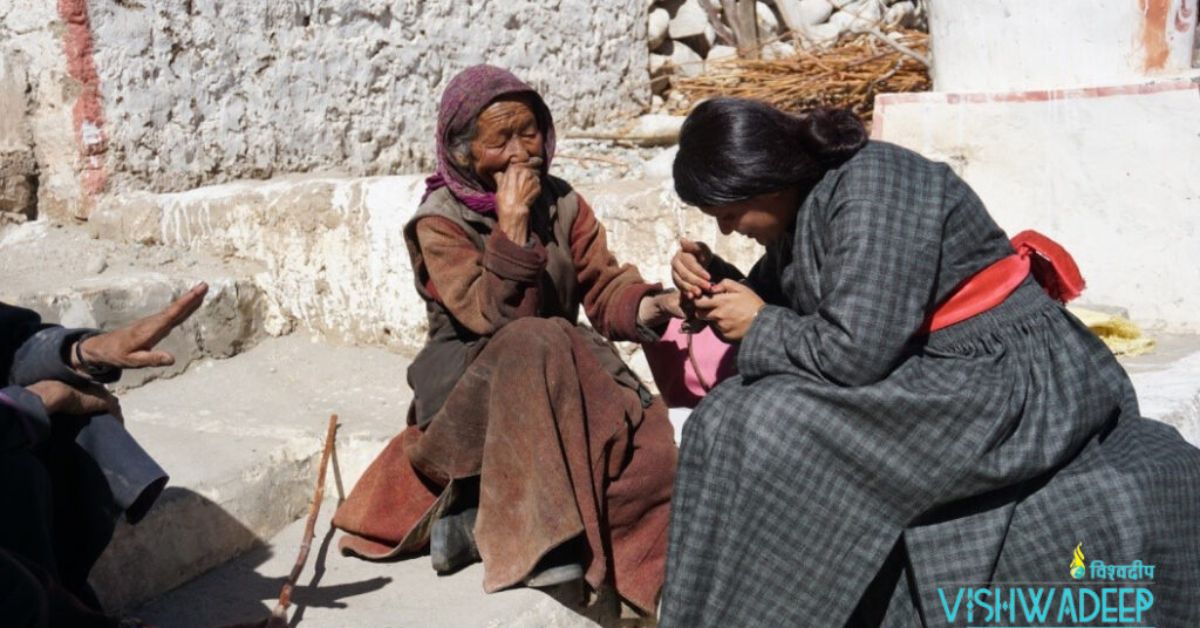
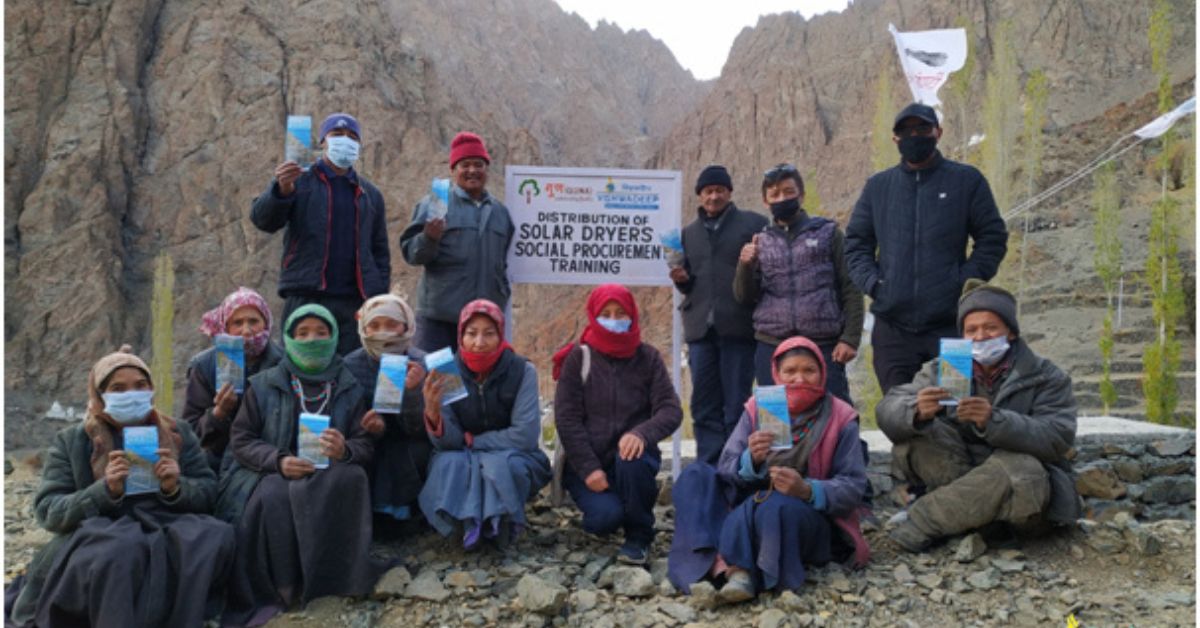
Along the way, there have been multiple boosts to her efforts, sometimes in the form of people’s support, and other times in the form of mentorship opportunities. The most significant, she recalls, is being a part of the cohort of the Women Entrepreneurship Platform (WEP) — a first-of-its-kind, unified access portal incubated by NITI Aayog.
The platform brings together women from different parts of India to build a nurturing ecosystem that enables them to realise their entrepreneurial aspirations by providing them with mentorship, access to funding opportunities, personalised guidance and networking opportunities with industry experts.
Elaborating on the wealth of experience she gained from WEP’s Unnati program, a collaboration
with Microsave Consulting and the Small Industries Development Bank of India (SIDBI), which focuses on supporting women-led enterprises in the green sector, she says, “We were 15 women in green ventures who were a part of this. We are all trying to bring about a change. It is great to be around people who have the same struggle as you.”
She adds that there are a host of useful online courses and customised sessions made available for women through WEP and its program partners. She adds, “They have put us in paired each one of us with mentors who help us foster connections with relevant industry experts. The aim is to make us fully ready.” It is associations like these that champion the revolution Upadhyaya is attempting to create.
And this lies against the backdrop of the eco-villages she has been instrumental in creating.
A microcosm of change
Defined as “an intentional, traditional or urban community that is consciously designed through locally-owned participatory processes in all four dimensions of sustainability (social, culture, ecology and economy) to regenerate social and natural environments”, an eco-village is a challenging concept.
But when Upadhyaya set out to give Takmachik village in Ladakh a sustainable makeover, she understood that social, cultural, and ecological systems weren’t the only factors to navigate. The villagers’ mindsets needed a change too.
So, along with instilling sustainable measures — renewable energy resources, recycling, plastic alternatives and sanitation drives — she began convincing the villagers to broaden their horizons when it came to farming.
“The people of Ladakh were dependent on the apricot; rightly so, a major portion of the revenue is generated through its sale,” she says. But a little probing led her to discover that a kilo of apricots was retailing for just Rs 150.
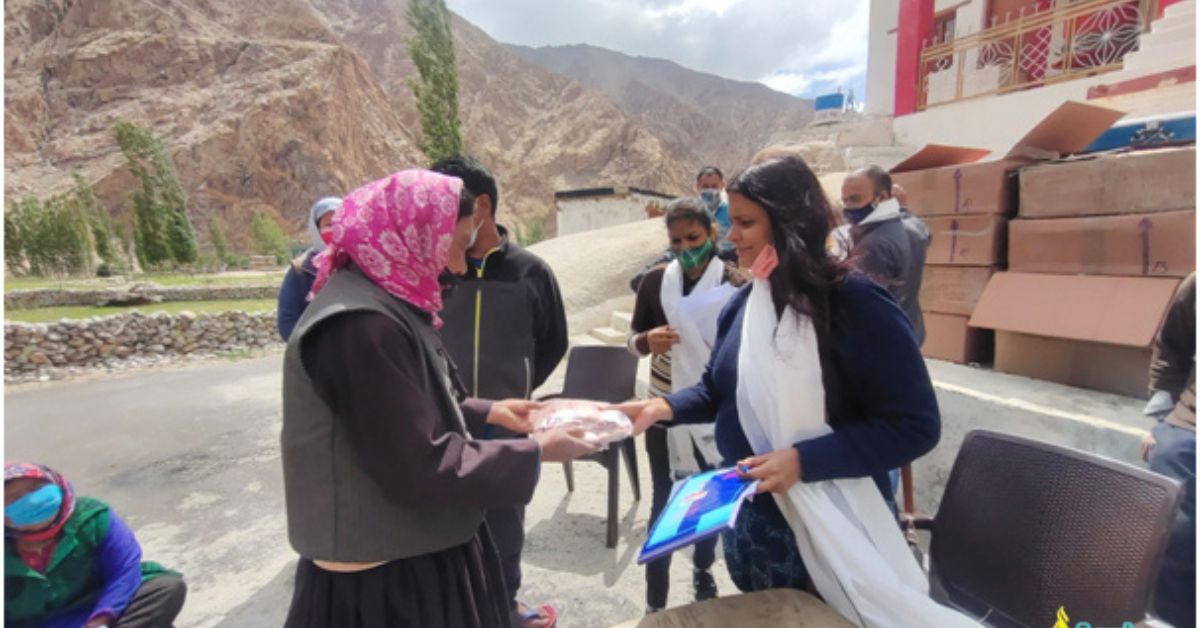
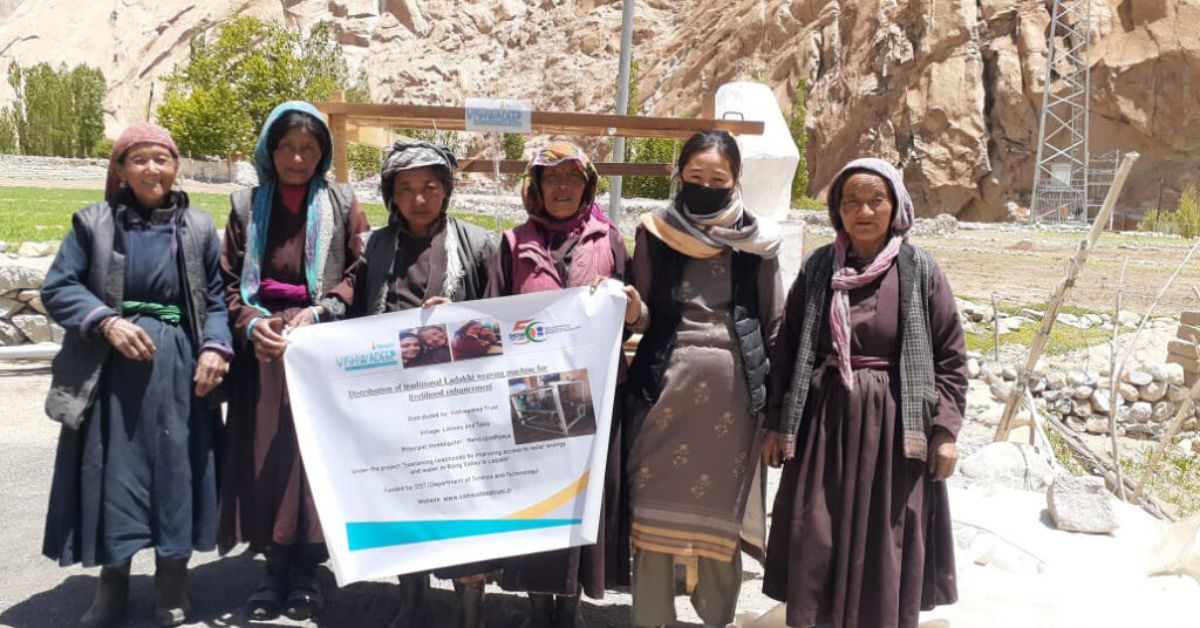
And thus began the journey of sun drying, optimising the hygiene quotient and teaching the locals to market the fruit to customers using words like ‘organic’ and ‘solar dried’. Currently, the fruit retails for Rs 465.
She also nudged the women farmers to explore other crops, like soybeans and oyster mushrooms.
She saw these alternatives as an antidote to the epidemic of anaemia that grapples the Ladakh region. Through these initiatives, Takmachik became an eco-village.
Once the first eco-village of Ladakh was seeing results with its eco-friendly practices, Upadhyaya was flooded with requests to replicate the model in the other villages too.
As morning settles in Ladakh, the birds’ banter can be distinctly heard.
Upadhyaya is grateful for these ‘better’ days. The horrors of watching entire families and homes being wiped out, not just once in the flash floods of 2010 but in all the others that followed, is a fresh memory.
“There have been days I have hugged the villagers, telling them that we would come out of the situation,” she says, adding that creating the eco-villages is like fulfilling that promise.
Today, Upadhyaya’s work is visible in the villages of Takmachik, Urbis, Domkhar Do, Domkhar Burma, Hanu Yokma, Hanu Thang and in Haryana, Sikkim, Uttarakhand and Himachal Pradesh.
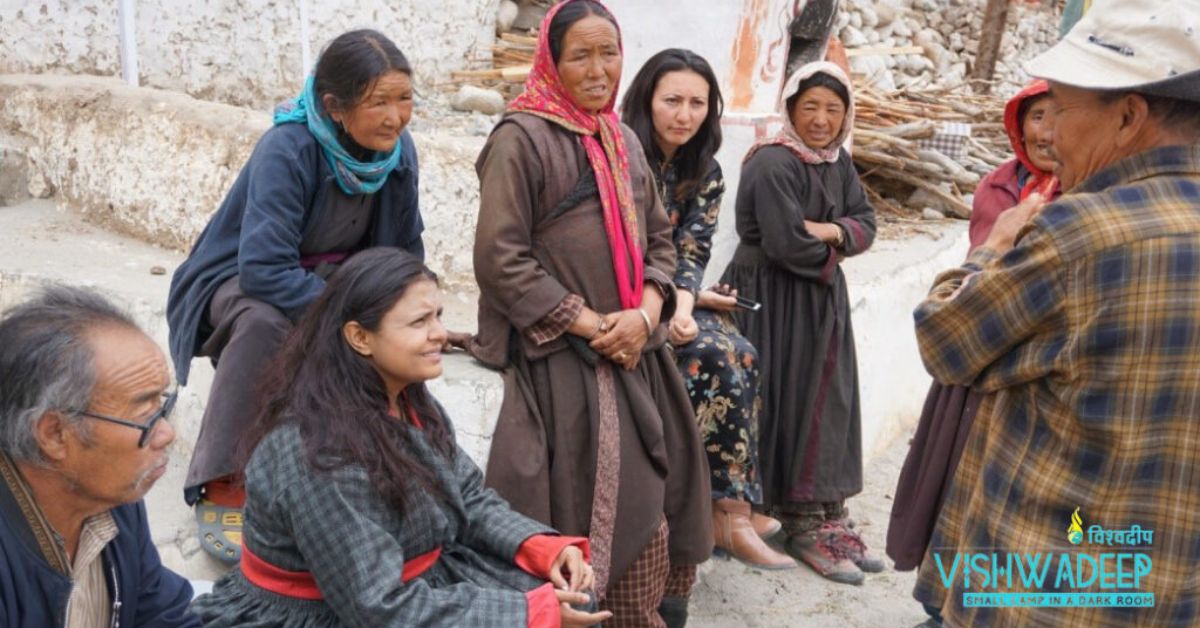
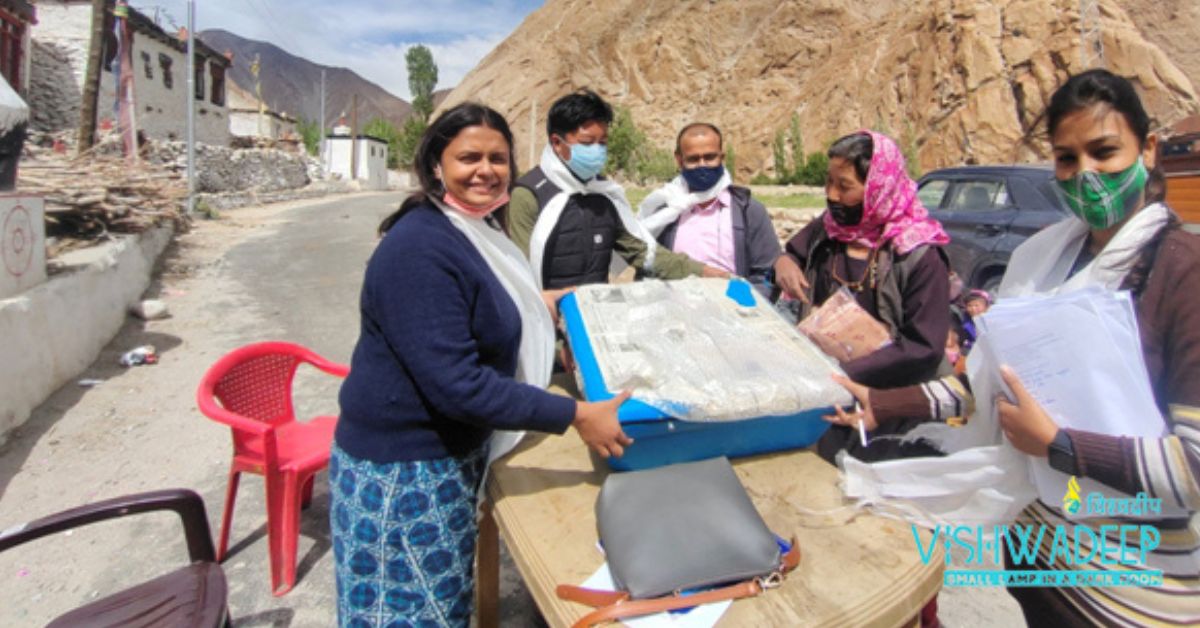
But championing rural prosperity has come with a price. Upadhyaya recalls many unwelcome visits from the local mafia trying to thwart her plans, often under the speculation that her efforts had a religious or political intention.
But she says her team’s support in the face of this has been unwavering.
“Our trainers conduct workshops in the local language and have regular monitoring visits where they encourage the farmers to continue organic farming and using solar technology,” she says.
Upadhyaya adds that having watched her go to the authorities numerous times to push for government grants and access to water and oil, the villagers trust her. They know she is on their side. “Because they have themselves seen the positive impact, they have been clinging to it,” she explains.
Today, as better toilets, improved livelihoods, and sustainable farm practices keep the flag of Ladakh flying high and proud, Upadhaya sees this as a collective win. They say it takes a village. In her case, it took eight.
Edited by Padmashree Pande.
If you found our stories insightful, informative, or even just enjoyable, we invite you to consider making a voluntary payment to support the work we do at The Better India. Your contribution helps us continue producing quality content that educates, inspires, and drives positive change.
Choose one of the payment options below for your contribution-
By paying for the stories you value, you directly contribute to sustaining our efforts focused on making a difference in the world. Together, let's ensure that impactful stories continue to be told and shared, enriching lives and communities alike.
Thank you for your support. Here are some frequently asked questions you might find helpful to know why you are contributing?








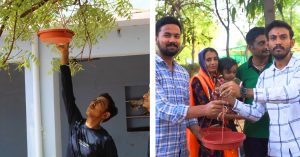
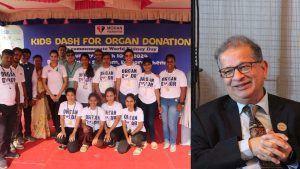







Check what other members are talking about -
Hello pls kindly send the better India Mumbai office contact no
Where can I get this solar reflective white paint for rooftop application in Mumbai?
Where can I buy the grow bags made by Eyyo ?